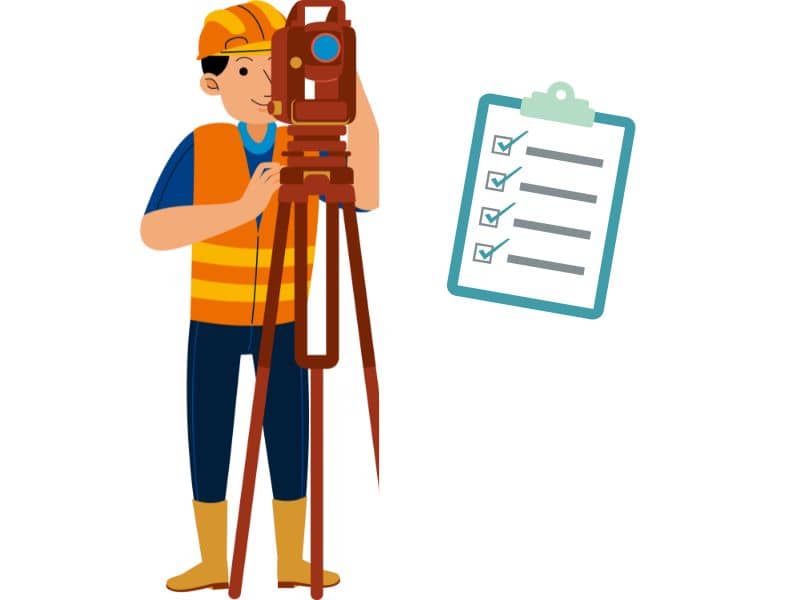
Ordering an ALTA survey is a crucial step in buying, refinancing, or developing commercial property in California. But diving in without the right preparation can lead to unnecessary delays, cost overruns, and legal issues.
Whether you’re closing on a commercial site in San Diego, developing a tech park in San Jose, or investing in a mixed-use building in Oakland, this checklist will help you streamline the process and protect your investment.
An ALTA/NSPS Land Title Survey is not your average boundary check. It provides an in-depth view of a commercial property’s legal, physical, and access-related characteristics. It’s based on standards developed by the American Land Title Association (ALTA) and the National Society of Professional Surveyors (NSPS).
ALTA surveys are typically required by lenders and title insurance companies to ensure there are no boundary disputes, easement problems, or access issues. It helps avoid costly surprises after the deal is done.
Missing paperwork or unclear scope can delay closings by days or even weeks. A checklist helps ensure everything is in place before the surveyor begins.
Being proactive also ensures the survey aligns with local zoning laws, access rights, and development plans—especially critical in California’s complex regulatory environment.
Make sure you have the most accurate legal description from the deed or preliminary title report. It should include the parcel number and legal boundaries.
A current title commitment from your title company is required. It lists existing easements, encumbrances, and exceptions that the survey must reflect.
Decide early which Table A items you’ll require (optional features such as flood zone data, utilities, topography, etc.). Not all surveys are created equal.
Ensure the surveyor can safely access the property. If it’s gated or in use, arrange for entry in advance.
Provide previous surveys, site plans, plats, and any construction drawings. This saves time and improves accuracy.
Each city in California may have different zoning rules. Confirm zoning codes with your city planning department and communicate them to the surveyor.
Use a surveyor with state licensing and experience in ALTA surveys. In places like Oakland or San Diego, local knowledge matters—so choose licensed ALTA surveyors in California who understand regional zoning and legal standards.
Ensure that the lender, title company, and your surveyor are in sync—especially if Table A items or endorsements are required.
Many properties in Oakland involve shared access, narrow lots, and older infrastructure. These complicate surveys and require a more thorough Table A checklist.
Near the coast, environmental overlays and utility easements often affect developable space. ALTA surveys help document these early.
Large industrial lots and utility-heavy properties in San Jose often require extended Table A items and coordination with multiple stakeholders.
❌ Rushing the Scope Definition: Take time to discuss what you really need.
❌ Not Involving the Title Company Early: Their input ensures your survey meets underwriting requirements.
❌ Using Outdated Site Information: Give your surveyor the latest plans and permits to avoid errors.
Confirm Table A items, timeline, and title exceptions with all parties.
Make sure the buyer, title company, and lender approve the survey scope before the fieldwork begins.
Ordering an ALTA survey without proper preparation can lead to costly errors. But with the right checklist, you can prevent delays, protect your title, and ensure your property is ready for development or resale.
Whether you’re investing in commercial property in San Diego, San Jose, or Oakland, use this checklist as your guide—and always work with professionals in commercial land surveying services to ensure accuracy and compliance.
1. Do I need one for vacant land?
Yes, especially if easements or access rights may affect future development.
2. Can I reuse a previous ALTA survey?
Only if it’s current and meets all new title and lender requirements.
3. How much does it cost?
Between $2,000 and $8,000 based on size, location, and Table A options.
4. Who receives the final survey?
The buyer, title company, and lender—all use it during closing.
5. Are ALTA surveys required by law?
Not by law, but almost always required by lenders and insurers.
6. What happens if I skip it?
You risk boundary disputes, title claims, and problems with permits.